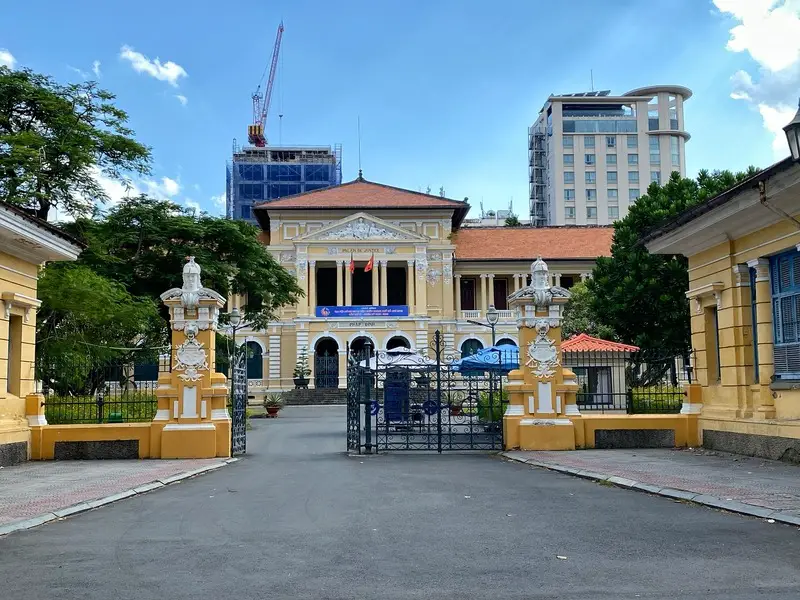Truong My Lan, a Vietnamese billionaire and renowned real estate mogul, has been condemned to death in a landmark legal verdict in Ho Chi Minh City, Vietnam. Lan was found guilty of executing an elaborate financial fraud, which has been labeled the most massive in the history of Vietnam.
The fraud perpetrated by Lan amounted to $12.5 billion, which is equivalent to nearly 3% of Vietnam’s GDP for 2022.
The court found that the 67-year-old billionaire had unlawfully diverted funds from the Saigon Joint Stock Commercial Bank, a financial institution she secretly controlled. This fraudulent activity, which spanned over a decade, led to a loss of approximately $27 billion. The court ruled that her actions gravely undermined public confidence in the country’s financial systems and governance. She was ordered to reimburse the bank $26.9 million.
As the chair of the Van Thinh Phat real estate conglomerate, Lan was implicated in a sophisticated scheme that operated from 2012 to 2022. The fraud involved the approval of loans to non-existent companies, resulting in losses that many fear will be impossible to recover. The magnitude of her offenses led to a death penalty sentence, highlighting Vietnam’s recent intensified efforts to combat corruption and restore integrity in various sectors by targeting high-profile individuals.
In response to the ruling, a tearful Lan stated that her actions were the result of her “lack of understanding of legal matters,” and that she “did the wrong things.”
Lan, who is of Chinese-Vietnamese descent and originates from Cholon, Saigon’s primarily Chinese quarter — historically referred to as Ho Chi Minh City — started her entrepreneurial journey selling beauty products at a local market stall with her mother. In the 1990s, she ventured into the real estate market, acquiring dining and hospitality venues.
Along with her husband, Eric Chu Nap Kee, a Hong Kong-based property magnate, Lan was indicted along with a group of 85 co-conspirators. This group, consisting of legal professionals and financial overseers from Vietnam’s capital, Hanoi — known as the stronghold of the country’s communist governance — faced multiple legal charges.
The CEO of Van Thinh Phat, Lan’s niece, was sentenced to 17 years in prison for her involvement in the fraud. Additionally, a former central bank official implicated in the scandal received a life sentence for accepting bribes. Authorities seized over 1,000 properties and significant amounts of cash connected to the fraudulent activities of Lan and her accomplices.
Seventy individuals, including Lan and her husband, are now incarcerated in a maximum-security facility located northwest of Ho Chi Minh City, near the former U.S. stronghold at Cu Chi. This location served as the command center for the U.S. Army’s 25th Infantry Division during the Vietnam War and currently houses a network of tunnels open to visitors.
Meanwhile, ten individuals are under house arrest, and five remain at large, with broadcasts urging them to surrender. The outcomes of the trials involving the remaining accomplices are yet to be disclosed.
Evidence presented during the trial demonstrated how Lan abused her influence over the Saigon Joint Stock Commercial Bank by funneling funds to shell companies in Vietnam, Hong Kong, and Singapore. This misuse of funds not only personally enriched Lan but also destabilized the bank and threatened the stability of Vietnam’s banking system.
Despite claims from her defense team that Lan only held a minority stake in the bank and had no official banking role, testimonies from major shareholders revealed that she effectively controlled over 90% of the bank through proxies. This established her as the de facto owner. Her defense, which argued her limited understanding of legal and banking operations, failed to sway the court’s stringent verdict.
The complexity and magnitude of Lan’s fraudulent activities exceeded previous financial scandals in Vietnam, attracting considerable domestic and international attention. The trial underscores the ongoing challenges faced by Vietnam in its fight against corruption within elite circles.
This case represents the Vietnamese government’s stringent anti-corruption campaign under the leadership of the Communist Party of Vietnam. The campaign aims to improve the country’s international reputation and strengthen public trust in its leadership and economic stability.
The fallout from this trial extends beyond Lan and her immediate circle, highlighting the urgent need for improved oversight and transparency within Vietnam’s financial institutions. The case has likely set a precedent for how future offenses of this magnitude will be addressed, potentially prompting changes in governance and business practices throughout the country.











